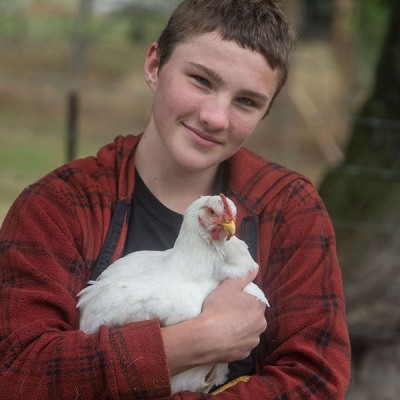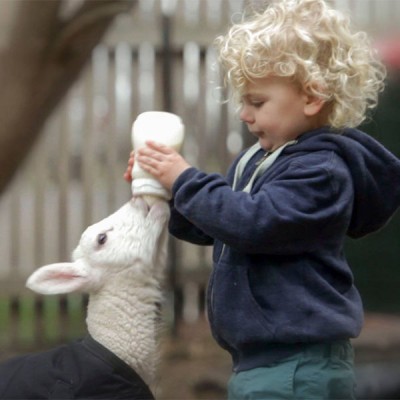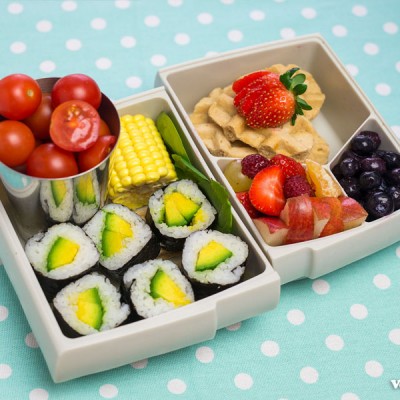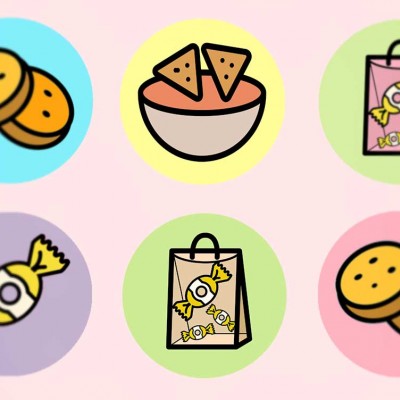Vegan At School… (Primary Edition)
There are a few important things you can do to help your vegan child begin their kindergarten or primary school years stress free.

Adjusting to a new environment can be exciting and overwhelming for kids! Communicating clearly and openly about your child, and what veganism means to whoever will be providing their care (as well as their peers and their peer’s carers) as early as possible is very important.
Beginning in a new environment such as kinder, preschool or primary school can be a great opportunity to help others learn about veganism while supporting your child’s needs. Speak with their teachers as soon as possible to let them know that your child is vegan, as many young children may not communicate this themselves. Be sure to contact all of their teachers, and keep this up as your child ages and they change classes.
Growing awareness of food allergies and intolerances in children means that teachers are accustomed to having similar discussions with other parents, and are required to be polite and understanding. Time is of the essence; alerting teachers ahead of time will allow them to accommodate your child as best they can.
Teachers and staff may not fully understand what it means to be vegan. To help them, provide a list of less obvious non-vegan ingredients like gelatin and honey and links to information and resources such as this website.
Inform your child’s teachers that you are more than happy to provide a vegan version of anything non-vegan that the class may use or eat. Connect with the parents of your child’s classmates (often this can be done via email), as they may organise birthday cakes and such for their child’s birthday and it makes it easier to know whether you will need to provide your own vegan-friendly party food. Having vegan party food stored at the school (like lollies or cake in a freezer) ahead of time can make this simpler for your child, the school staff and yourself.
For easily accessible treats check out our Vegan Cheat Sheet. For vegan cake recipes search online or if you prefer to buy a cake look for a local cake shop that offers vegan options, most will, but they may require you to book at least a week in advance.
For school lunches ask perhaps ask your child what they would like to eat. What they like to eat at home might be completely different to what they feel comfortable eating in front of their friends. If your child is shy or quiet, normalise veganism as much as possible for them. Talking with your child about their school life will help reassure them or address potential problems. Your child may prefer to take foods that are similar to what the other kids eat, to make them feel included. Some children may like eating vastly different food to their peers!
Veganism encompasses more than just the food we eat, and sometimes school activities will clash with vegan ethics, such as trips to the zoo and petting zoos at fetes. Communicate with the school exactly what activities you are comfortable for your child to participate in. Offer your child a great alternative so they don’t feel like they are missing out.
In some cases, explaining why some activities are not ethical may encourage the school to reconsider the activities that they are providing to their pupils. For example, one vegan mum pointed out that horse racing encouraged people to participate in gambling, and questioned if it was appropriate to normalise this for children. As a result, the school sweeps were cancelled the following year.
Lastly, if you can, get social! Social media has made it easier to connect with other vegan parents and create meet ups for like-minded people. Find vegan parent support groups or playgroups for you and your children. Finding support from other vegan parents will make your life easier, and give your child an opportunity to play with other vegan children.
Most importantly, encourage your child to see their veganism as a beautiful and inspiring point of difference which can have a truly positive effect on those around them. Teaching children to cherish and embrace their own individual differences, in all aspects of life, is very important.
Recent Articles
-

Tips for vegans with non-vegan parents
One of the challenges we face when transitioning to living as a vegan is navigating the relationships with those we hold close. Unfortunately just because our family loves us, doesn’t necessarily mean that they are going to make the same connections that we have made between the food we eat and the animals that we care about. Sadly, they may never become vegans themselves.
-

Vegan At School… (Teen Edition)
It is important to keep supporting your teenager throughout their high school years, now that they are becoming more independent they can start advocating for veganism themselves.
-

Talking About the Reality of Being Vegan: The Easy Way
Speak to children about veganism and animal rights with the view that their perspective will be to become empowered to create positive change.
-

When your child says they are going… VEGAN!
Don’t panic.
-

The Vegan Lunch Box
Are you looking to include kinder choices in your children's lunchboxes, but unsure how to make it work for school? Need some tips and tricks to get you started? We have the solution, and it’s exciting, healthy and quick (no lies!).
-

Parties & Vegan Party Food
Food ideas for planning a fun and delicious vegan birthday party for your kids.
Leave a Comment